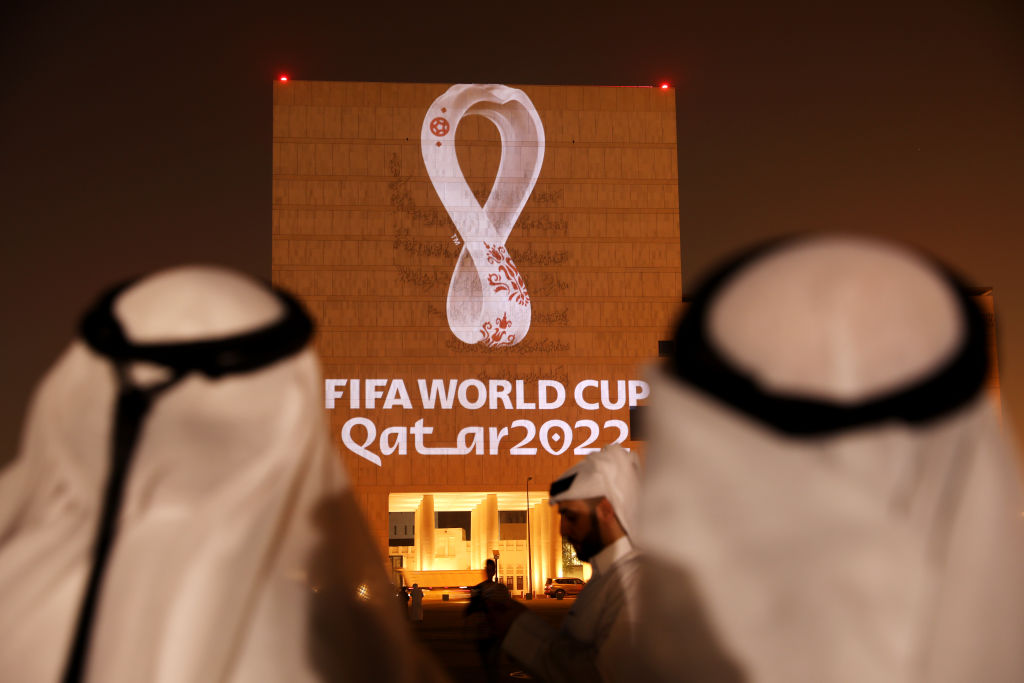Sport sponsorship: Forecasting the impact of the big events in 2022

Six months on from wading through the smashed bottles and broken dreams that littered Wembley Way after the calamitous Euro 2020 final, sports fans and sponsors can look forward to an abundance of major global events in 2022.
As it happens, this year has been designated the United Nations International Year of Glass, so it’s time to gaze into the crystal ball to see what lies ahead.
Beijing 2022 Winter Olympics
In February, Beijing will become the first city to have hosted both winter and summer Olympics.
While 2008’s summer event marked China’s emergence as a global superpower, it seemed likely the 2022 Winter Games would be a more low-key affair, offering fewer sports, attracting fewer competitors and generating less interest worldwide, particularly in warmer climes.
But as occurred in 2008, controversies have dogged the 2022 event with multiple western nations joining a diplomatic boycott over alleged human rights abuses, not least the recent case of tennis star Peng Shuai which led to the WTA suspending its tournaments in China.
The challenge for commercial partners of any sport operating in China remains a balance between addressing consumers in the world’s largest market and reflecting the values of customers elsewhere who, above all perhaps, value transparency.
Women’s Euro 2022
One thing that is crystal clear is that the Uefa Women’s Euro 2022, taking place in England in June, is on track to become the biggest women’s sports event ever to take place in Europe.
Postponed from 2021 to avoid clashing with the delayed men’s Euro 2020, the event seems destined to mirror the success of that tournament.
Whereas previous Women’s Euros have struggled to sell out, the speed and volume of ticket sales suggest record attendances are likely: 162,000 were sold during last summer’s pre-sale and 280,000 were requested through the recent ballot out of a total capacity of 700,000.
It is anticipated the remainder will be snapped up when they go on general sale early this year, eclipsing the 247,000 sold for the 2017 event in the Netherlands.
Commonwealth Games
One event that has often struggled to capture the imagination, however, is the Commonwealth Games, and the organisers of July’s event in Birmingham face a significant challenge.
Athletics, as important to these Games as it is to the Olympics, will host its delayed World Championships immediately before the Commonwealth Games and the European Championships straight after, placing huge pressure on athletes’ schedules.
For some, that means a tough choice as to whether to compete in Birmingham. Never an easy sell to sponsors, such uncertainty seems to have hampered organisers’ efforts to generate serious commercial interest in the Games.
Rugby World Cup
Another event that suffered a Covid-induced postponement is the women’s Rugby World Cup, now being played this autumn in New Zealand.
With the bookies pricing it as a straight shoot-out between England’s Red Roses and the host nation’s Black Ferns, England will be hoping that the two thumping defeats they inflicted on the Kiwis on their recent northern hemisphere tour are a good omen.
England’s women have received strong support from O2, a sponsor they share with the men’s XV, and it seems likely their potential success could attract greater commercial interest ahead of the tournament.
Qatar 2022 World Cup
Last but by no means least, where better for the international year of glass to reach its sporting climax than a land defined by its main ingredient: sand?
The 2022 Fifa World Cup kicks off in Qatar on 21 November. The first World Cup in the Middle East and the first to take place in the winter, the tournament is already perhaps the most controversial ever staged for a variety of reasons.
In 2022, however, the tournament may not even be the most contentious issue facing world football. That could be Fifa President Gianni Infantino’s desire to establish a biennial World Cup.
Infantino may have calculated that his grip on the levers of power in Zurich could rely on the votes of nations that rarely participate in World Cup final tournaments.
Consequently, another calculation has been made that estimates a £3.3bn increase in revenues, a 62 per cent increase on the existing four-year tournament cycle.
From this, a £2.6bn “solidarity scheme” would be established to support football development in – you guessed it – those nations that rarely reach World Cups.
This additional revenue will need to come from broadcasters and sponsors, many of whom will be asked to almost double their contribution to Fifa’s coffers.
Adidas chief executive Kasper Rorsted suggested in a recent interview that “one should also leave space for other things”, and this chimes with the views of Uefa and South America’s Conmebol, both organisations keen to maintain the stature of their European Championship and Copa America tournaments respectively.
Of course, one upside of a World Cup every two years is that England might have a better chance of winning. At the same time, their fans’ hearts of glass could end up being shattered more often.
Neil Hopkins is Global Head of Strategy at M&C Saatchi Sport and Entertainment.